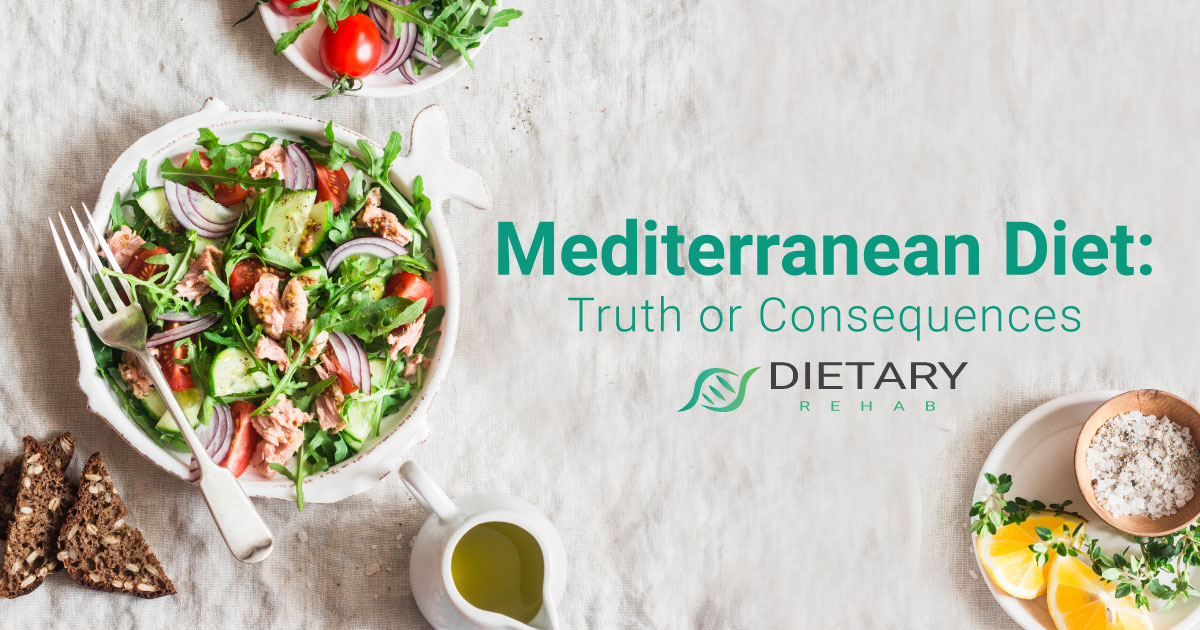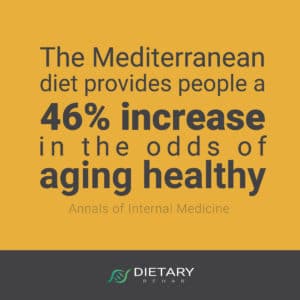 Finding healthier, easier ways to eat with enjoyment is a favorite American pastime. One of the premier diets getting a whole lot of attention is the Mediterranean diet.
Finding healthier, easier ways to eat with enjoyment is a favorite American pastime. One of the premier diets getting a whole lot of attention is the Mediterranean diet.
In actuality, the diet itself isn’t new. In fact, it’s been in existence for centuries. Its origin comes from the name, Mediterranean, mimicking the eating patterns of people from that region of the world.
And while this eating plan may be many years old, how we view its merits brings something new to the nutrition industry. In truth, the Mediterranean diet sheds light on a term widely misused: the word diet.
Moderation Is the Meme of Mediterranean Diet Truth
People generally defer to a specific diet seeking weight loss, preferably quick weight loss. But the results, like the diet itself, are temporary. One of the many key differentiators in the Mediterranean diet is that it isn’t a diet, in the traditional sense of the word, but in truth – a lifestyle.
You may have had a friend or family member, even yourself, give the Mediterranean diet a try in the past. It isn’t just about what you eat. It’s about adding the element of moderation to your world. Moderation implies reasonable serving sizes and balance in other lifestyle choices, such as exercise, whom you spend time with and how often.
How a Mediterranean Diet Improves Health for Life
 As the Mediterranean diet, followed in its entirety, creates a big picture mapping out a person’s day-to-day behaviors, committing to this program engages a more holistic lifestyle shift. Other diets, due to their temporary nature, do not support long-term use by the participant, setting up a recipe for failure.
As the Mediterranean diet, followed in its entirety, creates a big picture mapping out a person’s day-to-day behaviors, committing to this program engages a more holistic lifestyle shift. Other diets, due to their temporary nature, do not support long-term use by the participant, setting up a recipe for failure.
The Mediterranean diet provides life choices that promote happiness and socialization while increasing heart health and other benefits that extend longevity. Because the transition into “living Mediterranean” is somewhat seamless, the sense of self-sacrifice in not being able to eat many of the foods one loves, common during dieting, is near nonexistent.
Instead, these dieters have a greater sense of well-being and a feeling that, with this life plan, personal goals are achievable and likely permanent.
Eat Mediterranean Like You Were Born There
It isn’t difficult to adopt a Mediterranean lifestyle. What you eat is hearty, robust and full of texture and color. The choices are vitamin-rich and full of nutrients. Try to focus on what you can eat and not what you need to do without, and the experience will be that much more rewarding.
Limit your intake of red meat and processed foods including sugars, complex carbohydrates (white rice and foods made with white flour), unhealthy fats, or preservatives. Key words to remember are fresh, whole and of the earth.

Find excitement in what you CAN eat:
- Legumes
- Nuts (1 oz. daily)
- Beans, peas, lentils, hummus (1/2 cup serving, cooked, 2 times a week or more)
- Whole grains
- Brown or wild rice, bread or pasta made with whole-wheat flour, oatmeal, popcorn and quinoa (4 small portions per day and ALWAYS eat with protein and healthy fats)
- Fresh fish or seafood (4 oz., 2-3 times a week)
- Grilled, baked, poached or steamed
- Eggs (2-3 times a week)
- Cooked in olive oil, poached or hard-boiled
- Vegetables (5-10 servings a day, ½ cooked/1 cup raw)
- Fresh or lightly cooked to stay slightly crunchy
- Fruits (4-6 servings a day, ½ cup per serving)
- Fresh or lightly cooked
- Healthy fats (4-6 servings a day)
- Extra virgin olive oil (1 tbsp.) or 5 olives
- Avocado (1/8 of an avocado) or avocado oil
- Dairy (moderate consumption), low-fat or skim (1-3 servings daily)
- Fresh curd cheeses (1 oz.)
- Yogurt (1 cup)
- Kefir (1 cup)
- Milk (1 cup)
- Beverages
- Water
- Tea
- Coffee
- Red Wine (5 oz. per day for women; 10 oz. per day for men)
Mediterranean Diet Truth or Consequences You Can Live With
 The benefits of living a Mediterranean lifestyle are backed by science. Those who practice this diet regularly realize healthy weight loss while minimizing their risk of heart attack, type 2 diabetes, stroke and early death. In addition, the risk for certain cancers, such as head, neck, prostate and colon, is reduced.
The benefits of living a Mediterranean lifestyle are backed by science. Those who practice this diet regularly realize healthy weight loss while minimizing their risk of heart attack, type 2 diabetes, stroke and early death. In addition, the risk for certain cancers, such as head, neck, prostate and colon, is reduced.
There is also evidence that Mediterranean diet followers are less likely to develop Alzheimer’s or Parkinson’s disease.
Before trying this diet plan, make sure that your body can digest raw fruits and vegetables well. If you have certain health conditions such as IBS, this diet could be cumbersome to maintain.
Ask us, the nutritionists at Dietary Rehab, if this is the right program for you.
Live Mediterranean Now
 To get a taste of how the Mediterranean diet can make a difference in how you feel, try this:
To get a taste of how the Mediterranean diet can make a difference in how you feel, try this:
Working Wake Up!
½ cup, ripe peaches chopped, skin removed
½ cup skim milk (1% is fine too)
6 ice cubes
½ cup low-fat plain or vanilla yogurt
Sprinkling of cinnamon (optional)
Blend until all ingredients come together to a thick and frothy consistency. Pour into a to-go cup. Add a straw for fun. Start your day!











